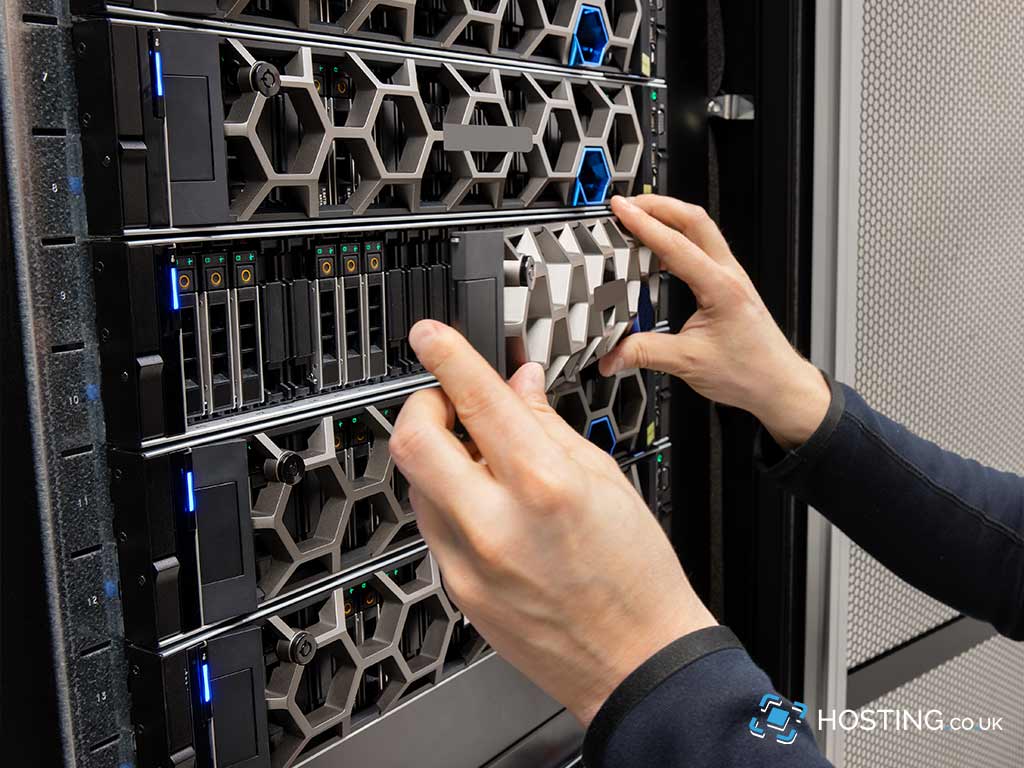In the world of web hosting, speed and reliability are crucial. SSD hosting servers offer significant improvements over traditional HDD servers.
Upgrading to SSD hosting servers can transform your website’s performance. These servers provide faster load times, enhancing user experience and boosting SEO rankings. SSDs, or Solid State Drives, use flash memory, which accesses data much quicker than older hard drives.
This means less downtime and more efficient data handling for your site. Whether you run a small blog or a large e-commerce platform, SSD hosting can handle traffic better, ensuring your visitors always have a smooth experience. In this blog post, we will explore the many benefits of switching to SSD hosting servers and how it can positively impact your online presence.
Introduction To Ssd Hosting
Upgrading to SSD hosting servers can bring many benefits to your website. SSD hosting provides faster loading times, better performance, and increased reliability. These advantages can enhance your user’s experience and improve your site’s overall efficiency.
What Is Ssd Hosting?
SSD hosting uses solid-state drives for data storage. Unlike traditional hard drives, SSDs have no moving parts. They use flash memory to store data. This makes them much faster and more reliable.
Why Consider Ssd Hosting?
There are many reasons to consider SSD hosting. First, speed is a significant benefit. SSDs can read and write data much faster than traditional drives. This means your website will load more quickly.
Second, SSD hosting is more reliable. Since SSDs have no moving parts, they are less likely to fail. This means less downtime for your website. Your visitors will have a more consistent experience.
Finally, SSD hosting can improve your site’s performance. Faster loading times can lead to better SEO rankings. Search engines favor sites that load quickly. This can lead to more traffic and better user engagement.

Credit: www.hosting.co.uk
Speed Advantages
Upgrading to SSD hosting servers can significantly enhance your website’s speed. Faster load times, improved user experience, and better overall performance are some key benefits. This section will delve into the speed advantages of SSD hosting servers.
Faster Load Times
SSD hosting servers offer faster load times compared to traditional HDD servers. SSDs use flash memory to store data. This allows for quicker access. With faster load times, your website visitors won’t have to wait long. This can reduce bounce rates.
Improved User Experience
Speed directly impacts user experience. Visitors expect pages to load quickly. Slow websites can frustrate users. SSD hosting ensures your website runs smoothly. This can lead to higher user satisfaction. It can also encourage visitors to stay longer on your site. A positive user experience can translate into better engagement.
Enhanced Performance
Upgrading to SSD hosting servers offers a wealth of benefits. One of the most significant is enhanced performance. This improvement can be seen in various aspects, such as reduced latency and better server response times. Let’s dive deeper into these benefits.
Reduced Latency
Latency is the time it takes for data to travel from the server to the user. With SSD hosting servers, this time is significantly reduced. Traditional HDDs rely on mechanical parts, which can slow things down. SSDs, on the other hand, use flash memory.
Flash memory allows for quicker data access. This means users experience faster page loads and smoother interactions. For businesses, this can translate to better user satisfaction and potentially higher conversion rates.
Better Server Response
Server response time is crucial. It determines how quickly a server answers a request from a user’s browser. SSD hosting servers excel in this area. They provide faster read/write speeds compared to HDDs.
| Storage Type | Average Read/Write Speed |
|---|---|
| HDD | 80-160 MB/s |
| SSD | 200-550 MB/s |
As shown in the table above, SSDs offer much faster speeds. This leads to quicker data retrieval and faster website performance. Users will notice the difference, especially on content-heavy sites.
In summary, upgrading to SSD hosting servers results in enhanced performance through reduced latency and better server response times. This can have a significant impact on user experience and business outcomes.

Credit: www.hosting.co.uk
Reliability And Durability
Reliability and durability are key factors when choosing a hosting server. Solid State Drives (SSDs) are known for their reliability and long-lasting performance. Upgrading to SSD hosting servers ensures that your website remains stable and accessible. This can make a significant difference in the performance and longevity of your website.
Longer Lifespan
SSD hosting servers generally have a longer lifespan compared to traditional hard drives. SSDs use flash memory, which is more durable and less prone to wear and tear. This means fewer replacements and less downtime for your website. A longer lifespan translates to better value for your investment.
Lower Failure Rates
SSDs have lower failure rates due to their solid-state construction. Traditional hard drives have moving parts, which can fail over time. SSDs, on the other hand, have no moving parts. This reduces the risk of mechanical failure. Lower failure rates mean fewer disruptions and more reliable service for your website. Your visitors will experience fewer issues, leading to better user satisfaction.
Improved Seo Rankings
Upgrading to SSD hosting servers can significantly improve your SEO rankings. Search engines favor faster websites. This makes SSD hosting a smart choice.
Search Engine Preferences
Search engines like Google prioritize websites that load quickly. SSDs offer faster data retrieval compared to traditional HDDs. This speed can reduce your website’s load time. Faster load times can lead to better rankings on search engine results pages (SERPs).
Higher Visibility
Higher search engine rankings mean more visibility. More visibility can drive more traffic to your site. SSD hosting can help you achieve this by improving load times. Faster sites offer a better user experience. This can lead to lower bounce rates and higher engagement.
Consider this:
- Faster Load Times: SSDs can reduce page load times.
- Improved User Experience: Faster sites keep users happy.
- Lower Bounce Rates: Users stay longer on faster sites.
Upgrading to SSD hosting offers several benefits for your website’s SEO. Faster load times can lead to higher rankings. Higher rankings mean more visibility and traffic. Consider making the switch to SSD hosting for better SEO results.
Cost-effectiveness
Upgrading to SSD hosting servers is a smart financial move. They offer many benefits, including cost-effectiveness. Let’s explore why SSD hosting servers make financial sense.
Long-term Savings
SSD hosting servers reduce maintenance costs. They last longer than traditional hard drives. This means fewer replacements and repairs. Lower maintenance costs result in significant savings over time.
Energy consumption is also lower with SSDs. They use less power, which reduces electricity bills. This is especially beneficial for businesses with large server needs.
Value For Money
SSD hosting servers offer better performance. Faster data access speeds improve user experience. This can lead to higher customer satisfaction and retention.
Investing in SSDs means better reliability. They are less prone to mechanical failure. This reduces downtime, which can be costly for businesses.
Overall, SSD hosting servers provide excellent value. They combine performance and durability, making them a wise investment.
Scalability And Flexibility
Upgrading to SSD hosting servers offers a range of benefits for businesses. One key advantage is the scalability and flexibility that SSD hosting provides. This allows businesses to grow and adapt their hosting needs as required. Let’s dive into the details.
Easier Upgrades
With SSD hosting, upgrades become much simpler and faster. Traditional HDD servers can take hours or even days to upgrade. SSD servers, on the other hand, can be upgraded in a matter of minutes. This means less downtime and a smoother transition for your website.
SSD hosting also offers seamless scalability. You can easily add more storage or increase bandwidth without disrupting your website’s performance. This is ideal for businesses experiencing rapid growth or fluctuating traffic.
Future-proofing
SSD hosting servers are built with the future in mind. As technology advances, SSDs are more likely to keep up with new developments. Traditional HDDs may struggle to handle newer software and higher data demands.
By upgrading to SSD hosting, you’re ensuring your website remains compatible with future technologies. This can save you time and money in the long run. Plus, SSDs generally have a longer lifespan than HDDs, reducing the need for frequent replacements.
| Feature | SSD Hosting | HDD Hosting |
|---|---|---|
| Upgrade Speed | Minutes | Hours/Days |
| Scalability | High | Moderate |
| Future Compatibility | High | Low |
| Lifespan | Longer | Shorter |
In summary, SSD hosting servers offer significant advantages in terms of scalability and flexibility. These benefits make it easier to manage and grow your online presence. Consider making the switch today to enjoy a more efficient and future-proof hosting solution.
Comparing Ssd And Hdd Hosting
Comparing SSD and HDD hosting is essential for making an informed decision about your website’s hosting needs. Understanding the differences helps in choosing the right technology for faster and more reliable web performance.
Performance Differences
SSD (Solid State Drive) hosting offers significantly faster data access speeds. This means quicker load times for your website. HDD (Hard Disk Drive) hosting, on the other hand, relies on mechanical parts. These parts slow down data retrieval. SSDs use flash memory, which provides near-instant access to data. This results in improved website performance and user experience.
Cost Comparisons
SSD hosting generally costs more than HDD hosting. The higher price reflects the advanced technology and better performance. Despite the higher cost, the benefits often outweigh the extra expense. Faster load times can lead to increased visitor satisfaction and higher conversion rates. HDD hosting is cheaper but may not provide the speed and reliability needed for high-traffic websites.

Credit: monsterhost.com
Frequently Asked Questions
What Are Ssd Hosting Servers?
SSD hosting servers use Solid State Drives for data storage. They offer faster data access and improved performance compared to traditional HDDs. This results in quicker website loading times and better user experience.
How Do Ssds Improve Website Speed?
SSDs have faster read and write speeds than HDDs. This reduces the time it takes to access and serve website data. Faster data access leads to quicker page load times, enhancing user experience.
Is Ssd Hosting More Reliable?
Yes, SSDs are more reliable than HDDs. They have no moving parts, reducing the risk of mechanical failure. This increases overall server reliability and uptime.
Does Ssd Hosting Improve Seo?
Yes, faster website loading speeds from SSD hosting can improve SEO. Search engines favor websites that load quickly. This can lead to higher rankings in search engine results.
Conclusion
Upgrading to SSD hosting servers offers speed, reliability, and efficiency. Websites load faster, enhancing user experience. Downtime reduces significantly, boosting site availability. SSDs provide better performance, ensuring smooth operations. They handle high traffic easily. Investing in SSD hosting improves SEO rankings and increases visitor satisfaction.
It’s a smart choice for businesses looking to grow online presence. Make the switch today. Enjoy the benefits. Your website deserves it.